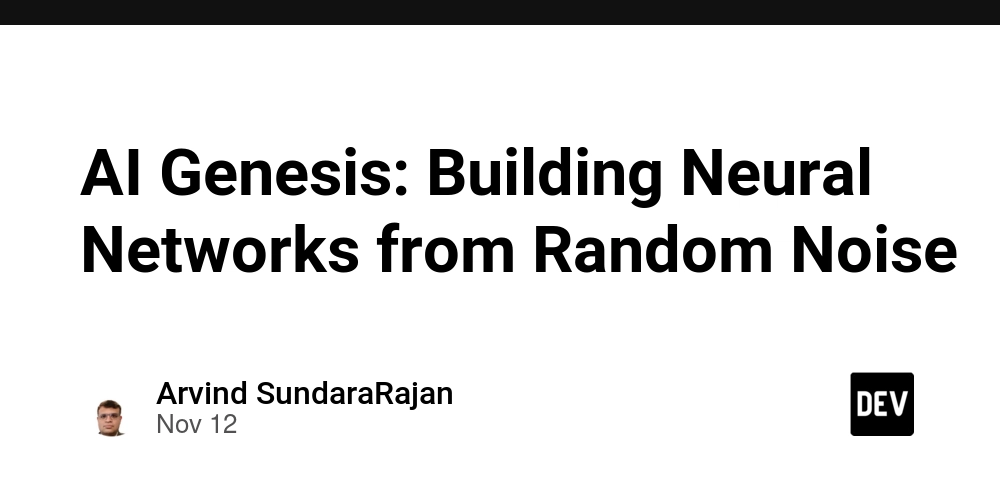Tired of painstakingly crafting every layer of your deep learning models? What if instead of architecting, you could grow neural networks from scratch? Imagine starting with a single computational ‘cell’ and letting it self-organize into a functional network, driven by nothing but random noise.
The core concept is surprisingly simple: inject controlled noise into an initial layer of artificial neurons. This noise acts as a ‘seed’ pattern, causing the neurons to spontaneously activate in a structured way. A second layer of neurons then learns this emergent pattern through a simple, local connection adjustment rule. This creates organized layers, mimicking biological brain development.
I’ve found this approach yields some fascinating results, and could revolutionize how we build specialized AI.
Here are the potential benefits:
- Adaptability: Easily create networks tailored to diverse input types, from images to time series.
- Robustness: Inherent fault tolerance; if some neurons fail, the network can still function.
- Efficiency: Potentially lower training costs as the network pre-organizes itself.
- Novel Architectures: Explore network topologies that might be missed by human designers.
- Biomimicry: Gain deeper insights into how biological brains develop and learn.
- Unsupervised Learning: The self-organization process can be seen as a form of unsupervised feature extraction.
One challenge I encountered was controlling the ‘noise floor’ – too little, and nothing happens; too much, and you get chaos. The sweet spot requires careful calibration. A good analogy is a chef using just the right amount of spice to bring out flavors, not overpower them.
Instead of training AI to recognize cats and dogs, could we grow AI specifically adapted to analyze financial market data, or control complex robotic systems? The possibilities are truly mind-boggling. The next step is to explore how to integrate feedback loops to create even more complex, self-improving systems. This could unlock a new era of truly autonomous AI.
Related Keywords: noise injection, stochastic processes, self-organization, neurogenesis, artificial neural networks, deep learning, generative models, evolutionary algorithms, complexity science, emergent intelligence, neuro-inspired computing, biological neural networks, reservoir computing, plasticity, synaptic pruning, randomness, chaos theory, optimization algorithms, gradient descent, unsupervised learning



